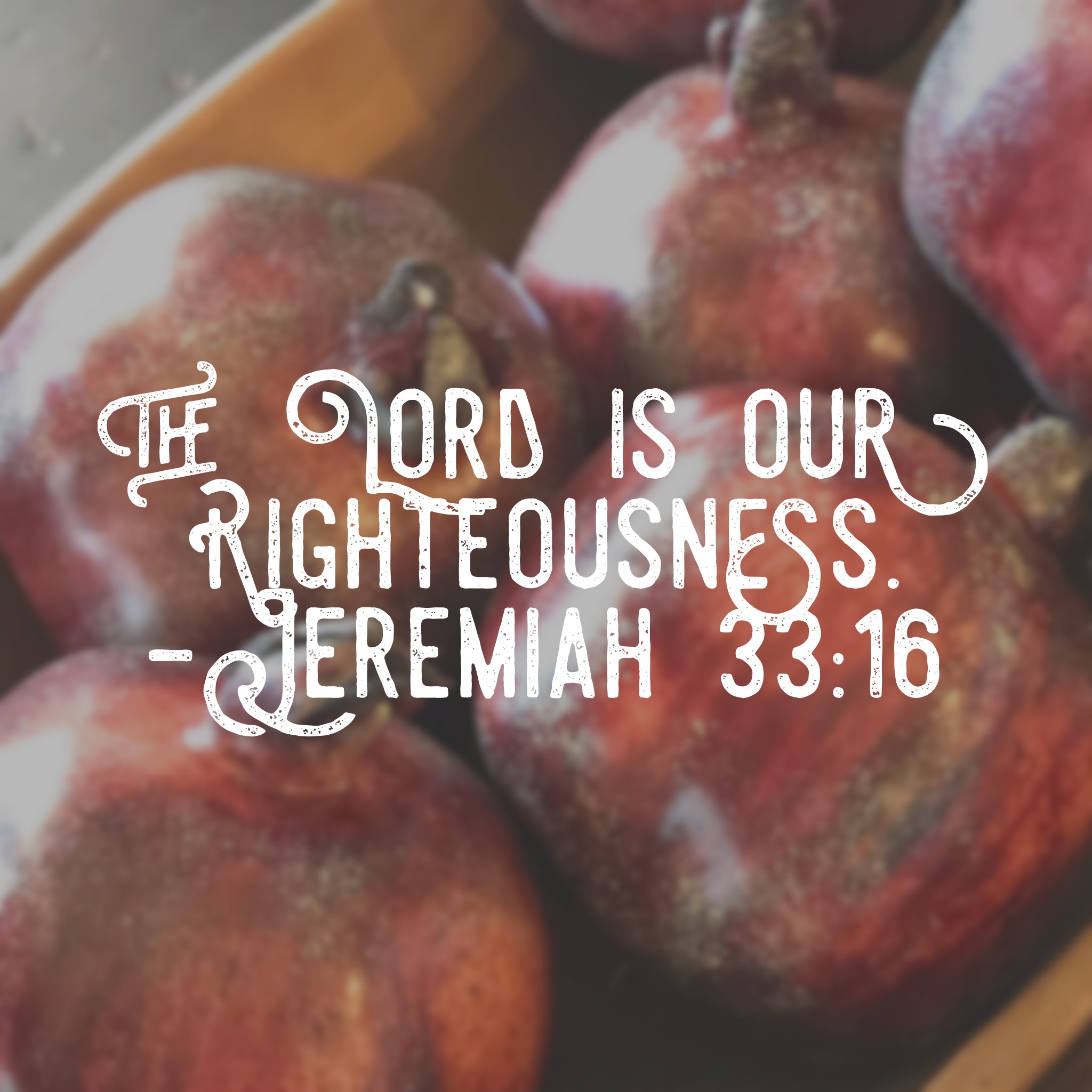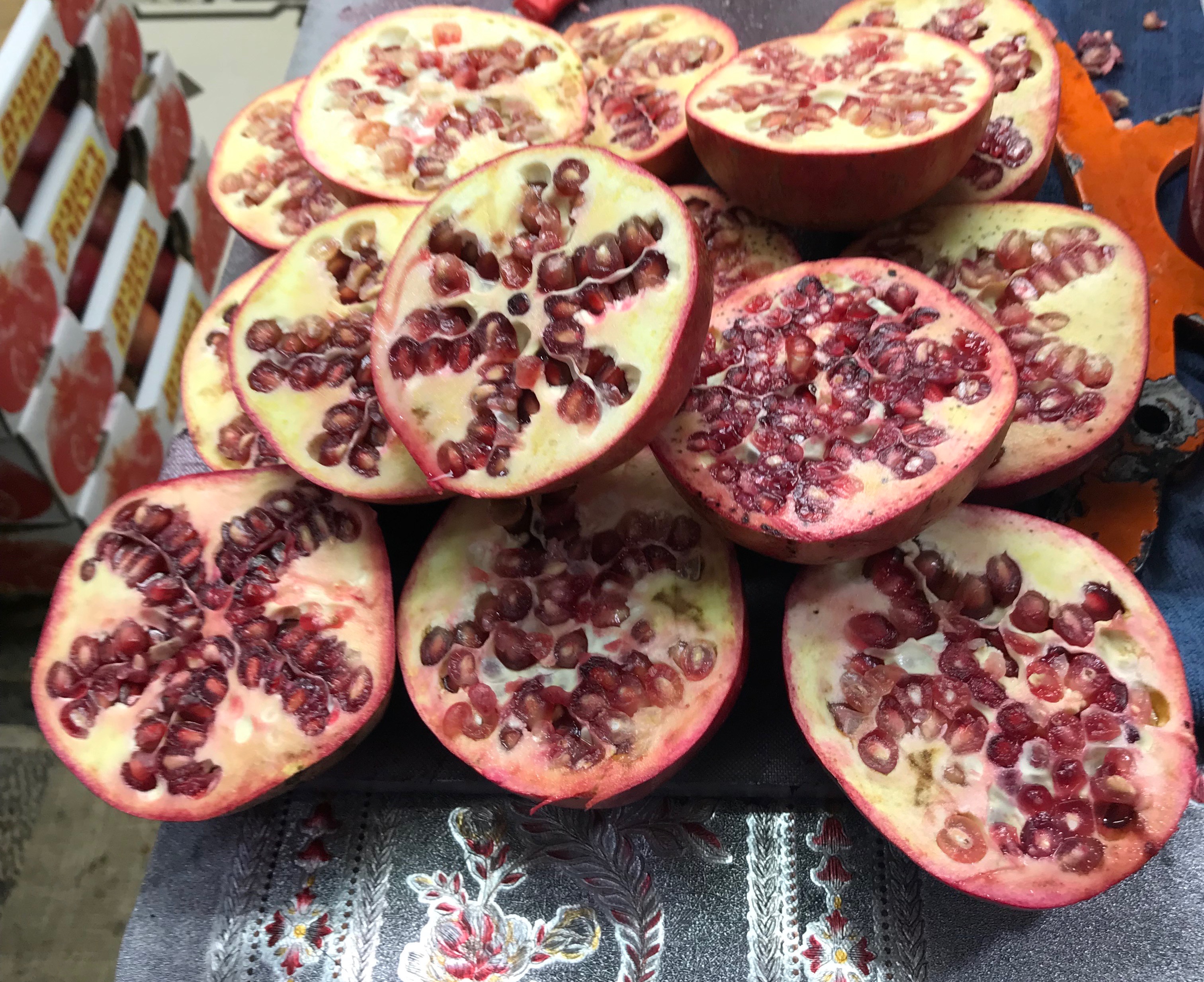
I had not known pomegranates were so significant in Jewish tradition until I began noticing them everywhere in Israel. At first it was the crates of large fresh pomegranates at every eatery we passed that caught by eye. But winding our way through the Old Jerusalem market place I began noticing pomegranates on pottery, paintings, jewelry, and linens. There had to be something more to them than just being readily available in this Mediterranean region.
What I learned later is the pomegranate is one of seven reasons the land of Israel is praised in Deuteronomy 8:8. Viewed therefore as a symbolic food, the pomegranate is a traditional stable at Rosh Hashanah, and also used to break the fast after Yom Kippur. But what I found most fascinating is the pomegranate is said to have 613 seeds, the same number of commands required by the Torah.
I can’t imagine living according to the rigorous law-keeping ways of our wonderful Jewish guide. How thankful I am we don’t have to.
For the believer in Christ we have been freed from the law. Jesus fulfilled it for us. Every requirement, he perfectly met. This is the part of the gospel so often left off. We think only of Jesus dying for us, but in order for us to be clothed in His righteousness He had to also LIVE for us!
Because Jesus did, God views us the same way He sees His Son – holy, perfect, righteous! The problem is we don’t live as if it’s true.
We live as if our own obedience/morality/performance is what gains us favor with God or makes us “good.” Even though this is not what we say believe, we say it is by grace not works we are saved. But functionally it is how we live.
For instance, if we don’t have our quiet time, go to church or pray we fear something bad might happen to us. If we do those things we think we deserve God’s blessing. This is living according to our righteousness – our works – not His.
Or, how about this: Why is it we look down on the ones who struggle with certain sins, deeming them sub-par Christian, but for the ones who have it all together on the outside, doing all the “right” Christian things, we look at them as role models on fire for God? We are basing our judgments on their own works. When in actuality, the ones obviously struggling may be far nearer to God because they know their need is great and cling in adoration to His grace. Whereas the “good” ones, like the Pharisees, live as if they are their own savior, not seeing how desperately they too need the righteousness of another.
Yesterday as we lit the prophets candle for the first Sunday of Advent we read this from Jeremiah:
Behold the days are coming declares the Lord when I will fulfill the promise I made to the house of Israel and the house of Judah. In those days and at that time I will cause a righteous Branch to spring up for David, and he shall execute justice and righteousness in the land. In those days Judah will be saved and Jerusalem will dwell securely. And this is the same by which it will be called: ‘The LORD is our righteousness.'”
Praise be to God, He provided the Promised Seed, the one whose work and worth secures our right standing before God. Otherwise, we would work our tail off and still fall short.
By His grace, may we rest better in His finished work, and stop trying to be our own god by looking to our own “goodness” or performance.

